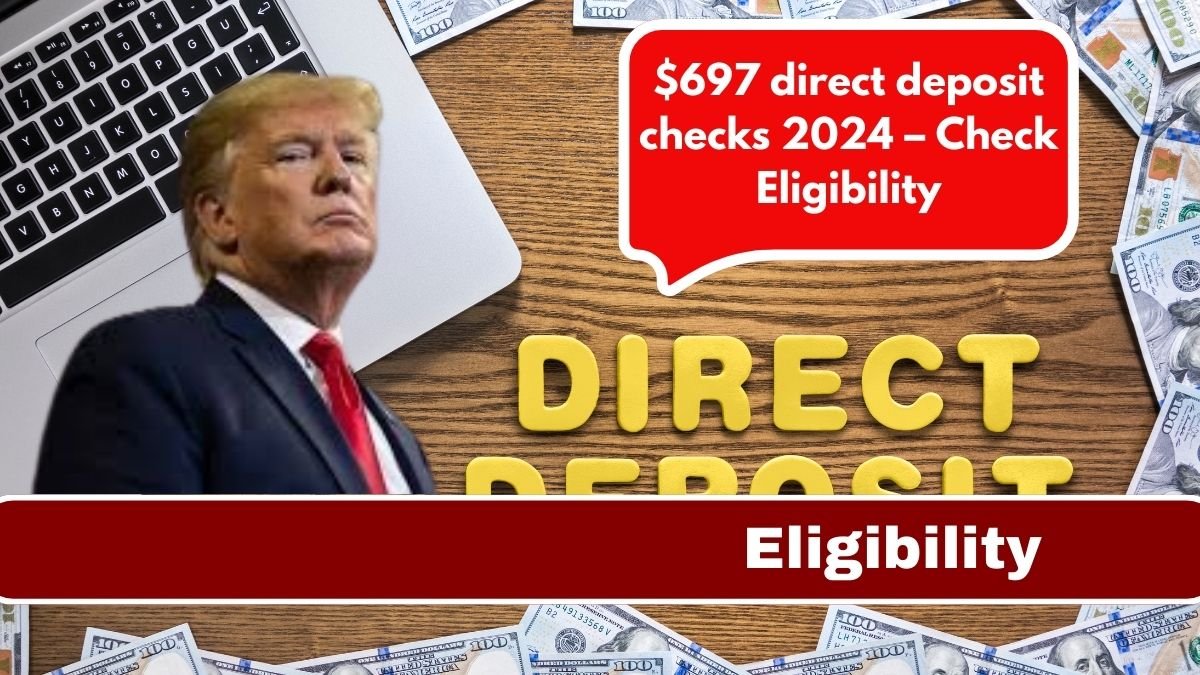If you’re tired of waiting for a check in the mail or making trips to the bank to deposit your paycheck, direct deposit might be just what you need. It’s a convenient way to receive your payments directly into your bank account, eliminating the need for paper checks. But, how do you know if you qualify for direct deposit? Don’t worry, we’ve got you covered. Let’s break down the eligibility requirements for direct deposit payments in 2024.
What Is Direct Deposit?
Before we dive into eligibility, let’s quickly refresh what direct deposit actually is. Simply put, it’s an electronic transfer of money directly from an employer or payer to your bank account. This payment method is faster, more secure, and less prone to errors compared to traditional checks. It’s commonly used for payroll, tax refunds, social security benefits, and other payments.
Are You Eligible for Direct Deposit?
The good news is that most people can qualify for direct deposit payments in 2024, but there are a few key points to keep in mind. Let’s go over the main eligibility criteria.
Bank Account Requirement
First things first, you need a bank account to receive direct deposits. This could be a checking account, savings account, or even a prepaid debit card that supports direct deposits. Without an account, there’s no way for your payments to be electronically transferred.
Employer or Payer Participation
Not all employers or payment providers automatically offer direct deposit. Some might still prefer to issue paper checks. However, most modern employers, especially large companies, offer direct deposit as the standard payment method. If your employer offers direct deposit, all you need to do is sign up and provide your bank account details.
Social Security and Government Payments
If you’re receiving Social Security benefits or other government payments, you can typically set up direct deposit for those as well. The U.S. government encourages recipients to switch to direct deposit to make payments faster and more efficient. In fact, if you don’t have direct deposit set up, you might receive your payment as a prepaid debit card instead.
Benefits of Direct Deposit
Now, you might be wondering, “Why should I choose direct deposit over traditional checks?” Well, there are some pretty solid reasons!
Speed: Direct deposit transfers happen quickly, sometimes even the same day. There’s no waiting for checks to clear or for mail to arrive.
Security: With paper checks, there’s always the risk of them being lost or stolen. Direct deposits are secure and eliminate that concern.
Convenience: You don’t have to physically go to the bank to deposit your payment. It’s all done automatically and safely.
No Fees: Some banks charge fees for depositing paper checks, but direct deposits are usually free of charge.
Direct Deposit Eligibility for Different Payments
Whether you’re receiving a paycheck, Social Security, or tax refund, the rules for direct deposit eligibility are similar. However, let’s break down the specifics for different types of payments:
| Payment Type | Eligibility Criteria | How to Set It Up |
|---|---|---|
| Paychecks | Must be employed by an employer offering direct deposit. You also need a valid checking or savings account with a bank or credit union. | Provide your employer with your account number and bank routing number. |
| Social Security Benefits | U.S. citizens eligible for Social Security or Supplemental Security Income (SSI). | Sign up online at the Social Security Administration website. |
| Tax Refunds | Must have a U.S. bank account that can accept direct deposits. | When filing your tax return, select direct deposit as your payment option. |
| Unemployment Benefits | Eligible for unemployment benefits and must have a bank account that can receive direct deposits. | Apply for unemployment benefits and provide your bank details. |
| Veteran’s Benefits | U.S. veterans eligible for VA compensation or pension benefits. | Set up direct deposit through the VA benefits portal. |
Common Challenges with Direct Deposit
Even though direct deposit is a great option, some people run into issues. For example, if you change your bank account, you’ll need to update your direct deposit information. Additionally, if your employer has trouble processing direct deposits, it could delay your payment.
Another common issue is when someone’s bank account has been closed or frozen. In that case, payments could get returned, and you’ll need to provide a new account number.
Conclusion
In 2024, direct deposit is still one of the most convenient and secure ways to receive payments. As long as you have a bank account and your employer or payment provider supports direct deposit, you can enjoy the benefits of faster, safer payments. If you haven’t yet signed up, it’s definitely worth considering.
FAQs
What types of payments can I receive through direct deposit?
You can receive paychecks, tax refunds, Social Security, unemployment benefits, and more.
Can I set up direct deposit if I don’t have a bank account?
No, you need a valid checking or savings account that supports direct deposits.
How long does it take for a direct deposit to go through?
Direct deposits usually happen on the same day or within one to two business days.
Do I need to pay any fees for direct deposits?
Most banks do not charge fees for direct deposits, but it’s always a good idea to check with your bank.
What happens if I change my bank account?
You’ll need to update your direct deposit information with your employer or payment provider.




